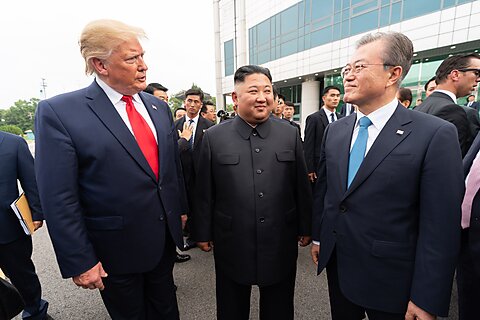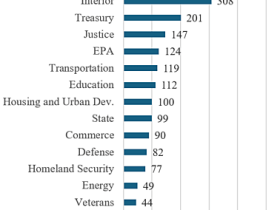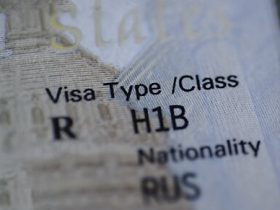Evan Sankey
North Korean leader Kim Jong Un has named his price for engaging with the Trump administration. In a speech to his parliament on Sunday, he said, “If the US drops its hollow obsession with denuclearization and wants to pursue peaceful coexistence with North Korea based on the recognition of reality, there is no reason for us not to sit down with the US.”
No aspect of this position should be surprising. Complete denuclearization was already a fanciful aspiration six years ago, when President Trump and Chairman Kim engaged in their first, abortive round of talks. Back then, pressure from intense UN sanctions and fear of conflict with the US made Kim willing to at least talk about denuclearization. Today, North Korea’s position is vastly improved. The size and complexity of its nuclear arsenal have grown. Russia and China have relaxed their enforcement of the sanctions. And in 2024, the North signed a mutual defense treaty with Russia under which thousands of North Koreans were sent to fight in Russia, and the DPRK military gained access to advanced Russian military technologies, possibly including technology to build nuclear-powered submarines.
Chairman Kim has stated the obvious: the era of denuclearization talks is over.
But he also said he still seeks engagement with the US and has “good memories” of President Trump. US policymakers should take this message seriously. As I argued earlier this month in The American Conservative, it is in the US interest to build a constructive relationship with North Korea, but this is only possible if US policymakers drop their traditional “denuclearization first” negotiating position. Talks aimed at striking incremental deals could lead to valuable restraints by the DPRK: caps on its stock of fissile material, caps on its arsenal of long-range missiles, and a permanent moratorium on its testing of those missiles.
Notably, Kim did not use his speech to formally abandon the 2018 Singapore Joint Statement, signaling he may be willing to negotiate on the basis of its four-part agenda: establishing a new US-DPRK relationship, building a peace regime on the peninsula, working toward complete denuclearization, and repatriating the remains of US soldiers who died in the Korean War.
President Trump should test the waters by offering new talks based on the Singapore Statement, but this time focused on building a constructive relationship, rather than precipitous moves toward denuclearization. The White House should also consider making upfront offers to declare an end to the Korean War and establish diplomatic liaison offices in Washington and Pyongyang.
Kim Jong Un has done US policymakers a favor by distinguishing fantasy from reality. The onus is now on the US to respond with a program based on realistic goals, rather than policy vestiges of the 1990s.






